The challenges and opportunities in creating a diverse workforce
Creating a diverse workforce means opening up opportunities for all, rethinking overseas assignments, getting the right support and package in place and not looking at women as a single homogenous group.
How to develop women’s careers using international mobility
Those were some of the ideas discussed in the panel discussion for Think Women at the Institute of Directors to mark International Women’s Day. The panel debated how to develop the careers of women, why diversity, equity and inclusion needed to be viewed through an intersectional lens and how best to encourage and nurture all talent, regardless of ethnicity or gender.
The three panel guests were Caroline Thorley-Farrer, group Mobility director at Worley; Jenny Hinde, executive director at the Clear Company; and Salma Shah, founder of Mastering your Power and an experienced coach and author. All three panellists are profiled in our 40 Outstanding Global Women, and the discussion, led by journalist Marianne Curphey, focussed on how diversity and inclusion presented great opportunities for organisations, and how to overcome challenges and difficulties.
Caroline Thorley-Farrer described how her first experience of global mobility was in her early 20s.
“I put myself on a train at age 21 and went to Brussels where I didn’t know anyone,” she explains. “Then, when I came back to the UK, I took a big risk moving from expatriate tax to global mobility. I had to take a step back and work my way back up.”
Years later, she moved with her family to Singapore, and found that as the non-working spouse, it was difficult for her husband to organise utilities, school and housing issues.
“I pushed myself into taking risks in an international career, and I made it work for us as a family,” she said. In her current role, diversity is at the top of her agenda, but she acknowledged that sending women to long-term hardship locations was a challenge.
Women may need more flexible assignments
“When we are thinking about the places we send people to, how can we make it more hospitable?” she said. “It might be that we build in some flexibility and perhaps change the length of the assignment. Organisations need to consider how we could take feedback from females and ask what would encourage them to take this type of assignment.”
It might be increasing the time on site to four weeks, and then having four weeks off, and reducing the assignment to one year rather than a three year commitment.
“Female assignees might be encouraged to get extra help at home and tick that box of childcare to enable them to work on a remote site in a difficult location to help them fast track their career. We never ask men how they cope and manage their childcare responsibilities at home. I don’t want to reinforce stereotypes but sometimes stereotypes are there because that is the reality.”
Looking through an intersectional lens can help organisations identify where they need to support women of all social classes and minorities and put in place measure to promote and support them.
“The experience that international mobility brings, the advantages of going out and meeting completely new people in a completely different environment, and how it stretches you and challenges you.”
Gill Gordon, Chair of the Permits Foundation
Minorities may be quicker at adapting to different systems and cultures
“When I reflect back on my career, since the age of three when I walked down the street started my nursery, I had to navigate a different system,” said Salma Shah. “Home was very different from school, and there is an opportunity for those who may not be in the majority to really fit well into assignments where they’re exposed to different systems. I found it easy to step into different cultures, so there’s an opportunity to experience assignments in the early stages of your career that may give you the opportunity and the confidence to step into a larger scale global assignment as you progress in your career.”
Authenticity, empathy and curiosity
Jenny Hinde said that the key was authenticity.
“If we’re going to tackle Diversity, Equity and Inclusion then we need to tackle it with authenticity,” she said. “Have we considered where our adjustment and accommodation programme is? Have we looked at pay equity for people who are going on assignment?”
She said that DE&I was often a challenge for organisations, because leaders who were accustomed to being the experts in their field were suddenly out of their comfort zone.
“They don’t know the language to use and they feel exposed when we start talking about neuro diversity or menopause – a word that is still uncomfortable for many people, if we’re honest about it,” she said. “It’s about helping leaders on this journey to understand that we’re not saying that you need to be an expert in all of the different lived experiences. Instead, being curious and having empathy, creating a psychologically safe space and building that confidence to ensure that they embed DE&I in everything they do in their roles.”
She talked about how regulators were increasingly interested in DE&I and sustainability, and that The Clear Company were involved in helping a lot of organisations audit their supply chains.
Female role models and mentoring
Caroline Thorley-Farrer talked about the importance of having a mentor, and having female role models who were relatable and inspirational.
Salma Shah said that the new demands of Millennial and future Gen Z employees meant that organisations were already being asked some tough questions.
“Organisations shouldn’t be caught sleeping,” she said. “The world is changing.”
Jenny Hinde agreed: “Any organisation that hasn’t clocked on that they need to make changes if they want to continue to have a talent pool of the future is in some serious trouble.”
Taking risks and making connections
In the workshop that followed, the discussion centered around the importance of having confidence, taking risks and making connections.
The round table discussions agreed that it was vey important to share stories of women who have great experiences and faced great challenges and how they have overcome them. International experience was seen as important to confidence and career development, and that it developed you as a person. You become less judgemental if you travel, and you learn stories and experiences from other countries and cultures.
Some of the potential barriers were lack of self-confidence, fear of the unknown, a lack of knowledge on how to navigate the world overseas and an unwillingness to take a risk. Some of this could be mitigated by cultural awareness and training and support with languages.
The groups agreed that young women could benefit greatly from internal assignments when they were in their 20s and in the early stages of their career, before the had the responsibilities of childcare.
Caroline Boyle, VP of Customer product at Alto Vita, said international experience builds confidence, grow awareness of your own culture and empathy for other cultures and broadens your horizons.
“With gender equality and diversity, it’s important to have those seats at the table. When leaders make decisions that will affect everybody, you need to have representation,” she said.
Gill Gordon, chair of the Permits Foundation, a not for profit organisation that tries to persuade governments to relax the work permit requirements for partners of mobile employees, said the key message of the day had been the importance of global mobility.
“The experience that international mobility brings, the advantages of going out and meeting completely new people in a completely different environment, and how it stretches you and challenges you,” she said.
In terms of moving the dial on equity, she said that change would not happen without effort.

Join Think Global People
Our exclusive membership network for decision-makers, aspiring leaders, experts and thought leaders focused on global business and working.
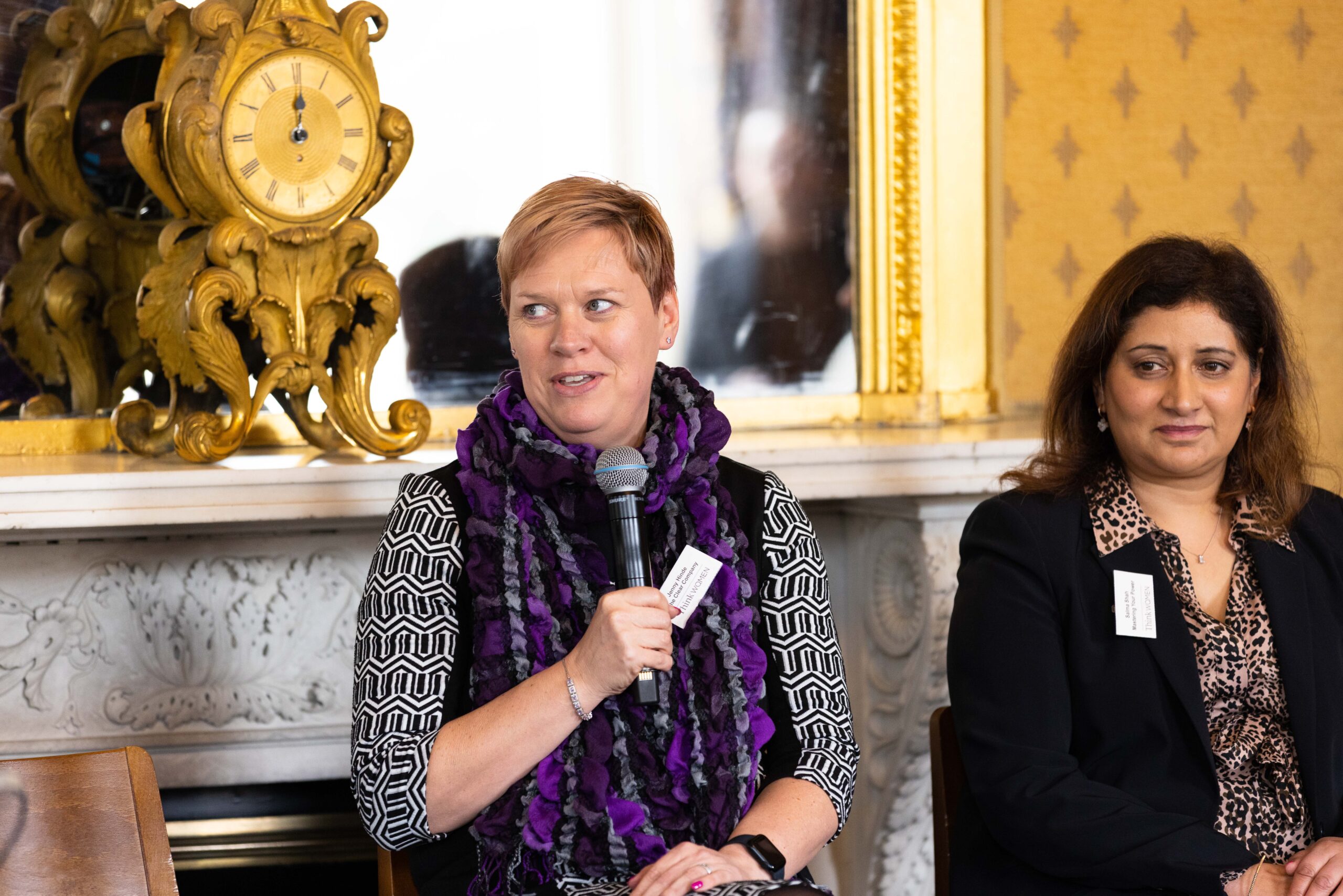
“We’ve come a long way since the 1980s, but we still have a quite a long way to go,” she said. “It is a question of companies keeping a focus on it because it is not something that will happen by itself. Companies have to keep succession plans for women, so they can develop, and they have to keep a very close eye on equity in terms of women’s salaries.”
Important leadership qualities in today’s world
In terms of leadership, she spelt out the important qualities needed in today’s world for someone who heads up an organisation.
“It’s extremely important that the leader has a vision for the kind of workplace they want and leads by example, promotes talent, gives a fair chance to up and coming talent, and really tries to stretch people and look for potential and tries to develop that,” she said. “The success of a good leader is how well they manage to create a team of people and develop that team to its maximum potential.”
Gina Lodge, CEO and founder of World View, a mentoring and coaching company, said the key quality of a leader was kindness.
“I think a lot of people would think that it is about strategy and knowing your subject,” she said. “I would say it is actually about kindness. Kindness is just such a gift when you’re working with people, because you’re relating to them as human beings, not cogs in a wheel. That’s really important. How you how you lead, setting the direction for people not then standing over their shoulder to see how they’re doing it or checking in on them, is important too.
“Trust is high on the agenda and also collaboration and, and praise. A lot of people think about end of term type reviews but if you are working together as a team, then good leadership is knowing your team, setting the direction and then letting them do what their expertise will do best. In terms of equality, we should make good use of all the skills that men and women and different personality types bring to the table.”

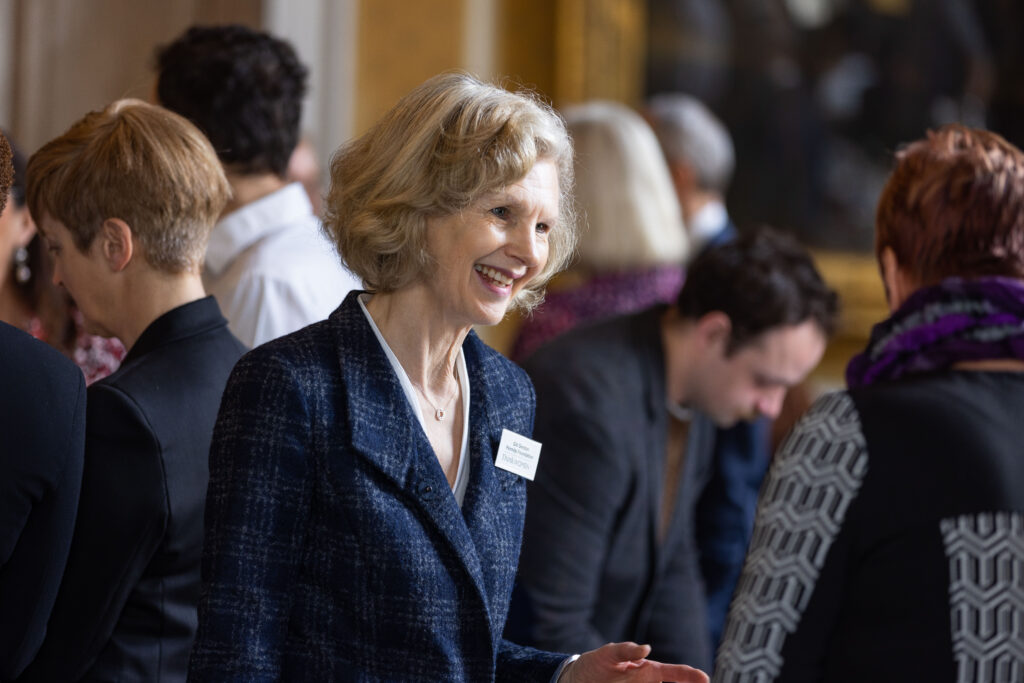
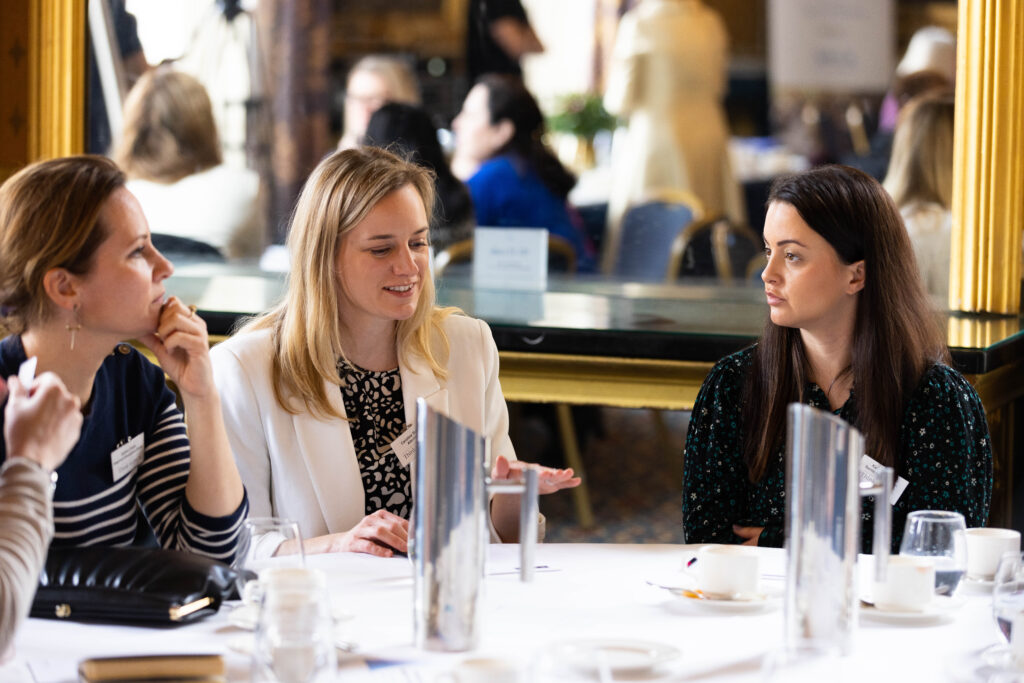
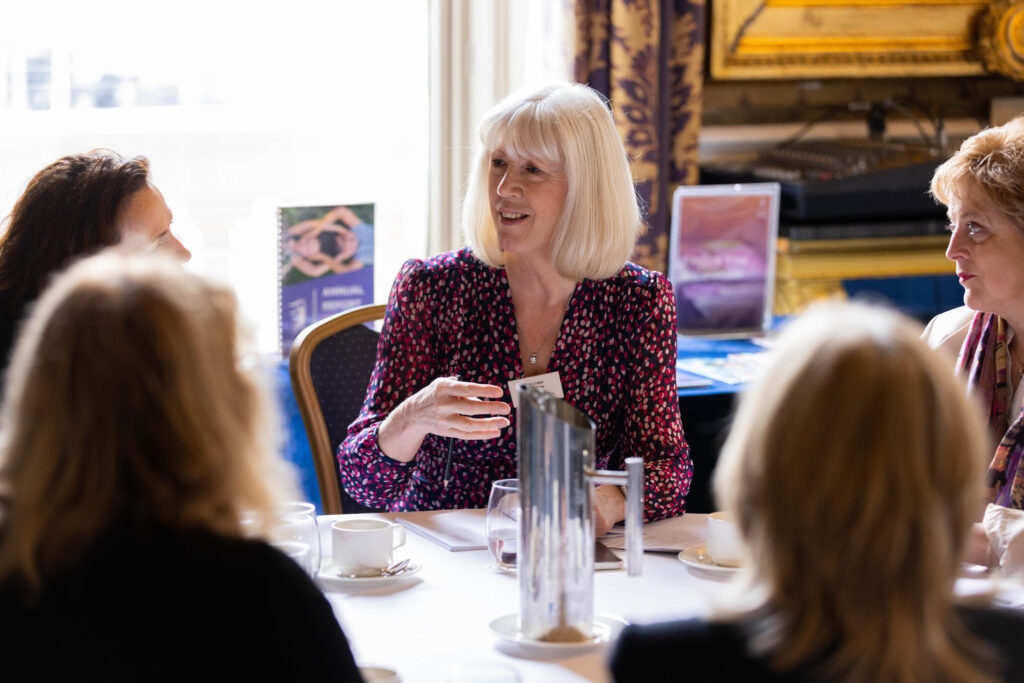
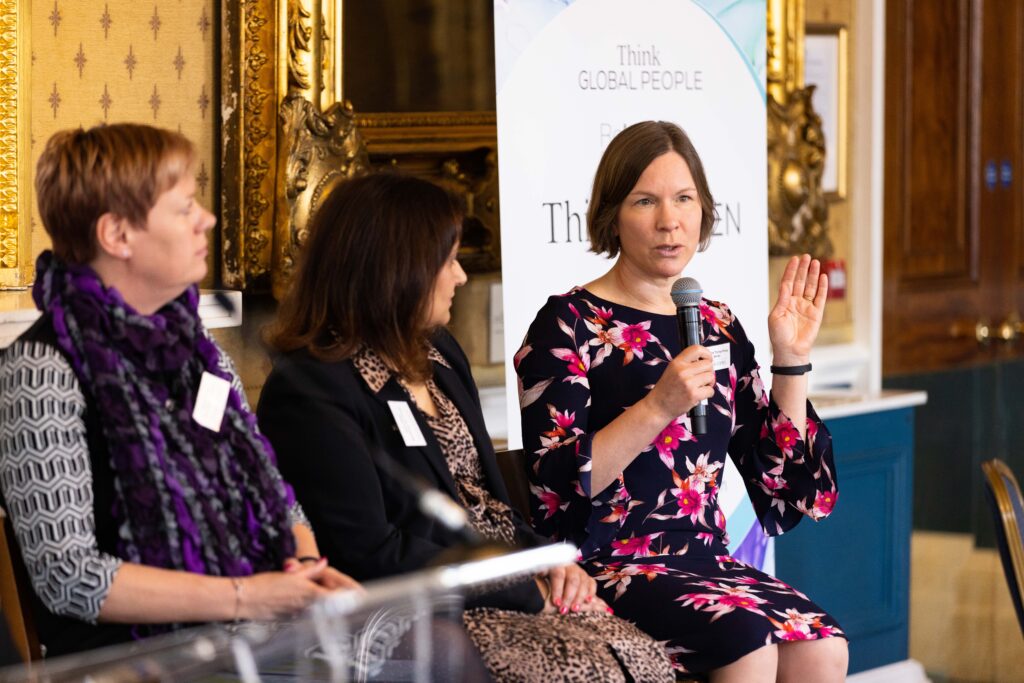




Trackbacks/Pingbacks